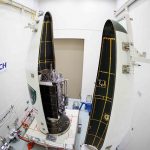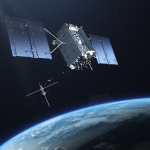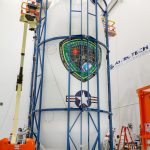December 20, 2018
UPDATE: According to SpaceX, the launch has been pushed back a second time. Initially the company had not selected a new launch date, but on Dec. 20 they stated that the new date was to be Dec. 22.
Here are some details from the SpaceX website published on Dec. 20:
SpaceX is now targeting December 22nd for launch of the United States Air Force’s first Global Positioning System III space vehicle (SV) from Space Launch Complex 40 (SLC-40) at Cape Canaveral Air Force Station, Florida. Weather is 80% favorable for the launch window which opens at 8:55 a.m. EST, 13:55 UTC.
For this mission, the satellite will be deployed to medium Earth orbit approximately 1 hour and 56 minutes after liftoff. Due to mission requirements, SpaceX will not attempt to land Falcon 9’s first stage after launch. You can watch the live launch webcast, starting about 15 minutes before liftoff.
Read More >
By Inside GNSS
















